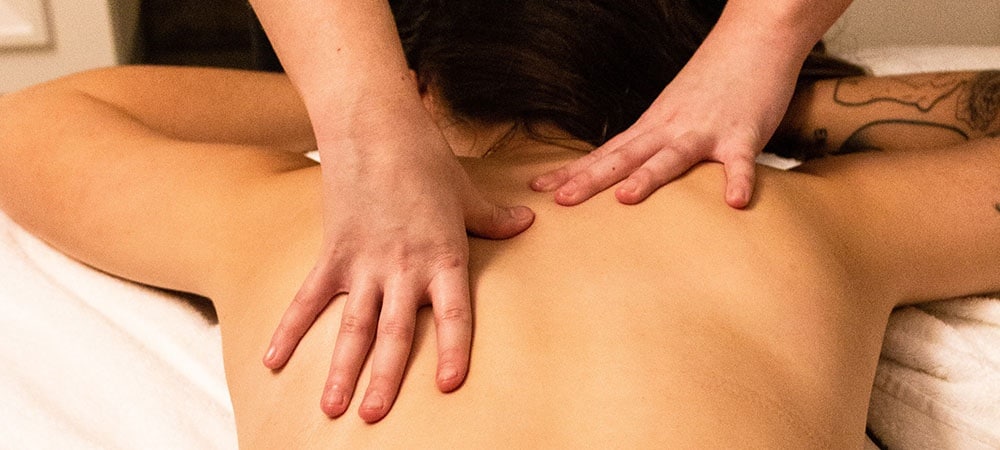What Does “Holistic Approach” Mean When It Comes to Addiction Treatment?
Just as addiction itself can be unique from one person to the next, treatment too can differ. There is no “one size fits all” approach to treatment; some techniques work well for some people, and other techniques work better for others. In deciding the right path to addiction treatment, it’s important to be aware of all the options available to you.
Conventional treatments like medications and psychotherapy are widely acknowledged and more commonly utilized in addiction treatment, especially in North America. However, there are other more holistic options that operate under a different value system, and that’s what will be discussed here.
What does “Holistic” Mean?
Holistic, in the medical sense, refers to the treatment of the person as a whole and taking into account mental and social factors. A holistic approach refers to addressing the person’s spiritual, mental, and physical needs, as opposed to conventional treatment which tends to be more symptom-management based.
A holistic approach often involves non-conventional treatment practices, of which there are many. These approaches take into account the mind-body-spirit connection. These techniques take a unique approach to addiction treatment, in that they address the whole person. These treatments are also referred to as “complementary” or “alternative” treatment options.
What are Conventional Therapies?
Conventional therapies refer to commonly used therapies in addiction treatment. This includes medication, general psychotherapy, group therapy, family therapy, and group or support meetings such as Alcoholics Anonymous (AA) or other 12-step recovery programs. These would be considered traditional programs available for addiction treatment.

Holistic Addiction Treatment Options
- Art Therapy. Art therapy utilizes the creative processes of art creation to facilitate a very unique therapeutic process. Art therapy creates an environment of expression and usually leaves the individual feeling open to expressing themselves more freely. Art therapy is appropriate for individuals of any age.
Art therapy promotes positive self-image and also supports self-reflection. This technique creates an environment that fosters self-improvement and personal growth. Those taking art therapy also learn how to soothe themselves in a healthy way, instead of turning to substance abuse.
- Music Therapy. Music Therapy refers to any therapy that utilizes music in some way to help the patient. It can help with anxiety, depression, isolation, and loneliness. In part, this is possible because it provides a creative outlet and a safe environment for expression. It has also been shown that drum circles, a specific kind of music therapy, have been shown to alter brain-wave synchronization and theta-wave production. This kind of effect is normally seen during altered states of consciousness and meditation. In this way, drum circles allow for the exploration of spirituality in music therapy. More recently, music therapy is beginning to gain attention among researchers. There is evidence to support its effectiveness in addiction treatment, and no doubt more to come.
Music therapy provides a creative outlet in a safe environment and has the potential to promote empathy and connectedness. It allows the individual to replace unhealthy coping habits with new, beneficial ones.
- Perhaps one of the lesser-known non-conventional addiction treatment methods is reiki. The word “reiki” actually means “spiritually guided life force energy” in Japanese. It’s a spiritual healing method that focuses on your “life force energy”. Reiki itself is spiritual in nature but is not connected to any particular religion. Reiki sessions are energy healing sessions performed by a reiki-certified practitioner. If focusing on the spiritual aspects of healing during addiction recovery appeals to you, reiki should be something you consider exploring further.
- Acupuncture is an ancient Chinese Medicine technique. This method of treatment focuses on balancing a person’s Qi (pronounced chee). Qi is referred to as your life force or energy flow, and in acupuncture, the goal is to have your Qi flow freely. In acupuncture, small needles are inserted at very specific points of the body to encourage this. Acupuncture encourages the release of endorphins and can help with pain relief. It is also intended to boost mood and energy.
- Nutritional Therapy. If you’re looking to get healthy in your recovery, nutritional therapy is a great place to start. Nutrition impacts wellbeing more than you might think – and therapy providing guidance on proper nutrition can improve mental functioning and wellbeing. It can also help combat anxiety and depression, both of which can be concurrent with addiction.
Nutritional therapy is thought to be a part of what’s called “biochemical repair”, or repairing the body at a biological and chemical level. This has been noted as especially beneficial for alcoholics, who are more likely to struggle with blood sugar levels. High-fat, nutrient-dense diets work to stabilize blood sugar, and as a result, can help combat cravings for alcohol. There is no downside to nutritional therapy, so even if it doesn’t on the surface seem to address your addiction specifically, know it can only help you overall!
- Massage therapy isn’t just an indulgence. It has the capacity to reduce physical pain, as well as combat stress and anxiety. By focusing on helping the individual in these capacities, the risk of relapse may be reduced. People with addiction often come to rely on their substance of choice to help them deal with negative emotions. By utilizing massage therapy, the individual introduces an alternate way to deal with and process these feelings.
- There are many people who utilize supplements for their health day-to-day, and why should addiction treatment be any different? After all, addiction is also a health concern. Supplements are not a cure-all but really focus on offering assistance to certain issues that may contribute to addiction.
For instance, some supplements such as magnesium and 5HTP have been shown to help with anxiety. Anxiety is a commonly-seen cofactor in addiction, so addressing this underlying factor may help support the individual’s recovery success. Other supplements, like multivitamins and greens powders, can assist in addressing nutritional deficiencies an individual has. Addressing these deficiencies promotes overall health and brain function, which can only support recovery as well.

Activities for Holistic Recovery
There are also activities you can do on your own to promote a more holistic approach to your recovery. Some of these activities may become pillars of your holistic recovery, and you may come to rely on these to support your sobriety in your day-to-day life.
Physical activities such as walking, running, and other forms of physical exercise are often recommended to be a part of a recovering addict’s life. This may be in part because taking care of your body and treating it as a priority may shift the way you think about yourself. The endorphins released during exercise can also help reduce negative thoughts and feelings.
Some individuals also find comfort in seeking spiritual guidance from a spiritual leader in the community. This can fill a huge gap in the lives of people who feel as though that component of their lives is not fulfilled. Spiritual care is a priority for many people, and pursuing this can also lead to a sense of community as well.
Reading books can help people with self-reflection and education, and it can also address some of the emotional needs you may have during recovery. You may like to learn more about addiction itself, or you may be eager to connect with someone else’s experience of addiction.
There is a lot of information available that can be used for those purposes. If you enjoy reading, this may be a great option for you.
Journaling is another activity worth noting, as this too provides an outlet for mental and emotional health. The process of writing down thoughts and feelings can help the individual organize their thoughts, therefore helping promote mental and emotional clarity.
Mindfulness and Meditation are other activities commonly used to promote self-improvement and wellness. Both practices aim at reducing reactivity, which can help reduce the instance of relapse. Increasing awareness while practicing detachment from one’s thoughts and feelings can also help deter cravings and help combat stress.
Is Conventional or Holistic Addiction Treatment Better?
It’s important to note that neither conventional nor holistic addiction treatment techniques are deemed better than the other. Although different in some ways, both offer unique benefits. It is important to keep an open mind on both sides. Feeling comfortable in trying both conventional and holistic options can only benefit your sobriety.
Can Holistic Treatments Address Mental Health?
Techniques that can treat mental health issues are important when considering how to combat addiction issues. That’s because mental health issues are often concurrent with addiction.
When we think about treating mental health, it is typical to think of therapy first. Therapy is a proven-effective and widely-used method of addressing mental health issues. Those suffering from addiction are likely to be referred to psychotherapy as a means of dealing with these issues.
It’s important to note that although therapy is an effective way of dealing with addiction and mental health, it is not the only option available. Classic psychotherapy is also known as “talk therapy”, and for good reason – it works best when the patient is willing to open up about their experiences with their words and express their emotions with words.
However, this kind of therapy doesn’t work for everyone. In fact, some people really struggle to share their emotions through spoken words. For those individuals, non-conventional methods may be more appropriate, especially art or music therapy which relies on different forms of expression.

How to Find a Holistic Rehab Facility?
Holistic rehab programs are quite widely available in the sense that many conventional facilities utilize holistic methods. Before choosing an inpatient or outpatient facility for yourself, do your research to find out if the techniques they offer suit you. Don’t hesitate to ask the staff or intake personnel about the services they offer.
You may also find a holistic treatment option through a referral, as the practitioners you are currently connected with may also be connected with other holistic professionals that could be helpful to you.
Should You Try Holistic Addiction Treatment?
Holistic addiction treatment is not the opposite of, but rather complementary to conventional treatment options. For that reason, there is no loss in trying it. Some of these techniques might be very new to you, so trying these options out may be a little intimidating!
Remember that you are on a very personal journey right now, of self-reflection and self-discovery, as you work towards recovery. Be open to the options available. Don’t be afraid to try holistic addiction treatment options on your way to the very best version of you.







